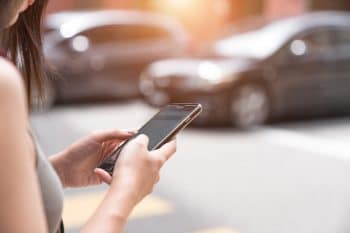New App Tracks and Helps Manage Opioid Dependency
Categories: Addiction , Awareness , Epidemic , Support , Treatments

App Tracks Buprenorphine Doses to Manage Opioid Withdrawal
The Opioid Epidemic remains a common concern for Americans for several reasons. The first: more than 115 Americans die of an Opioid-related overdose per day. A second, ongoing concern is the role pharmaceutical drugs still play in the Opioid crisis. Many of the individuals suffering from Opioid addiction have taken medications like Morphine, Oxycodone, or Percocet® for intense, chronic pain. Due to the highly addictive nature of Opioids, many people begin a lifelong–and sometimes fatal–battle with Opioid abuse.
In an attempt to curtail high rates of Opioid addiction, Yale medical experts have designed a progressive addiction-management phone app. BUP Home Induction helps people battling addiction to better manage their addiction treatment medication schedule. For two years, assistant professor of medicine, Dr. David Rosenthal, distributed papers to patients with directions for the ideal time to take their Buprenorphine prescription. When people discovered how helpful the paper form was, he believed a high-tech version may be better. This idea led to a digitized version of the paper, birthing the BUP Home Induction app.
Rosenthal partnered with Yale psychiatrist, Dr. Theddeus Iheanacho, to apply for funding grants to create the app. BUP Home Induction shows patients how to safely take their Opioid addiction treatment medication, Buprenorphine, for the first 3 days of treatment. The first three days, known as the induction phase of treatment, are especially important for patients due to withdrawal symptoms like sweating, anxiety, nausea, and abdominal pain. Individuals can track and keep note of any problems they have, while using the app to learn about treatment.
Convenient Care
Individuals using this app can get a better grasp on how their Buprenorphine medication benefits them and what it does for their Opioid Use Disorder. Additionally, they have access to frequently asked questions for their convenience. Apps like these allow people to access medication management information for free and in their privacy of their home. Medical staff can also use it to help patients, and rehab facilities can encourage its use among their own patients.
Applications like this and others make treatment accessible and contribute greatly to helping people cope with the difficulties of addiction. The app encourages responsibility and can save the lives of Americans struggling with addiction.